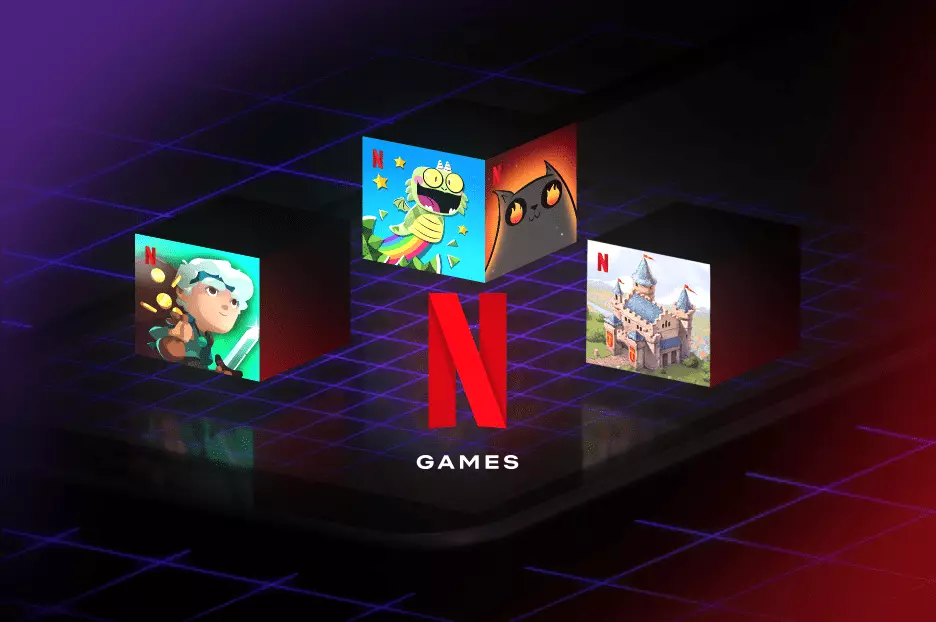Five months can be an eternity in the fast-paced world of technology and game development, particularly for a platform that has seen seismic shifts in both content creation and audience engagement. This context sets the stage for the recent developments at Netflix Games, where the initial excitement surrounding the utilization of generative AI, under the leadership of Mike Verdu, has taken a downturn. When Netflix first announced Verdu’s promotion to vice president, his exuberance for generative AI was palpable. “GenAI is that next challenge,” he boldly proclaimed in a LinkedIn post, invoking the nostalgia of the 90s gaming renaissance. This exuberance was infectious, capturing the imagination of many in the industry who yearned for the kind of innovation that could reshape the gaming landscape.
However, this rosy picture was clouded by an evident lack of concrete plans or details about how generative AI would tangibly impact development processes. While wavelengths of excitement flowed freely, the lack of a clear roadmap raised eyebrows. Verdu’s departure signals not just a personnel shift but rather a potential misalignment between ambition and execution within the organization, suggesting that Netflix’s venture into generative AI may have been rushed or perhaps overly optimistic.
The Impact of Leadership Changes
Verdu’s exit from Netflix Games after such a brief tenure raises questions about the stability and strategic direction of Netflix’s gaming ambitions. He was not just a leader but the personification of the company’s aspirations in this nascent sector. Without his guiding vision, Netflix finds itself at a crossroads where it must reconcile its generative AI dreams with the practical realities of content production and revenue generation.
Moreover, his sudden departure leaves a significant void, not only in leadership but in the momentum that Netflix aimed to build around generative AI. As the company is devoid of a clear successor, doubts linger about whether the generative AI initiative will continue as a core focus or fade into the background. This obscurity is troubling, especially given the growing competition in the gaming space, where companies are increasingly reliant on innovation and originality to capture user interest.
The Realities of Subscriber Retention
Despite the promise of innovative projects, Netflix Games has had a rocky road since its inception. With the massive success of external titles like Grand Theft Auto dominating their download charts, it becomes increasingly apparent that Netflix’s own gaming offerings are struggling to compete. The platform’s own projects, such as “Squid Game: Unleashed,” have achieved some recognition, but Netflix’s acknowledgment that these titles yield “relatively small” effects on subscriber retention starkly highlights the fragility of their strategy.
At the heart of the issue lies a fundamental question: Is it wiser for Netflix to invest heavily into original titles that may take years of development, or should it adopt a model where they license existing popular content? The era of original development seems to have lost its luster, and the specter of generative AI could promise a shortcut. However, shortcuts in the creative industry often lead to muddled outcomes, undermining the very uniqueness that the platform hopes to promote. As Netflix stands at this intersection, it is evident that both paths offer distinct risks and rewards, complicating its ability to establish a foothold in the gaming landscape.
A Critical Crossroads Awaiting Direction
The departure of Verdu may not merely be a setback; it could signify deeper issues within Netflix’s prioritization of gaming as a whole. With generative AI being touted as a transformative technology, the challenge becomes how and when to adopt it in a way that aligns with their overall strategy. While the excitement for what’s possible is inspiring, the track record suggests a company that is faltering at the intersection of ambition and realization.
Netflix’s explorations into generative AI, while alluring in theory, need not only technical sophistication but also a committed vision shared across all levels of leadership. With all eyes on them, the big question is whether Netflix will reshift its paradigm, doubling down on original creation, or slide into a model of convenience that might sacrifice innovation for speed. As the gaming landscape continues to evolve, Netflix must tread carefully to reclaim their position, or risk being left behind in an industry that moves at lightning speed.

